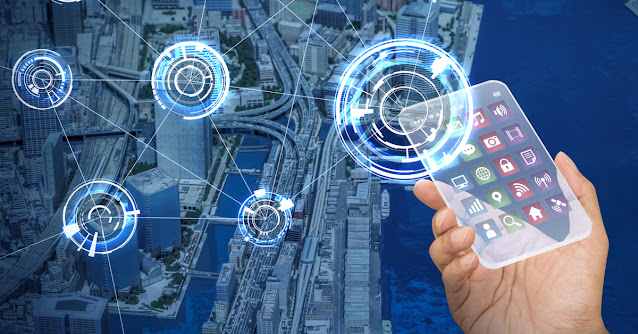Emergence of Location-Based Services
Location-based services (LBS) have seen tremendous growth in the past few years due to advancement in technologies like GPS, Wi-Fi, Bluetooth and 5G networks which allow our mobile devices to detect and share location data. As more and more users access the internet on their smartphones, the demand for location-aware applications and services has increased exponentially. In this article, we will look at the emergence of LBS, different types of LBS, opportunities they provide and challenges around usage and privacy of location data.
What are Location-Based Services?
Location-based services or location services are applications, websites and
services that utilize the geographical location of a mobile device to deliver
customized and personalized information to the user. Some basic functions of an
LBS include determining the geographic location of a user and providing
information and content tailored for that specific location. Most location
services rely on GPS, Wi-Fi, cell tower or Bluetooth positioning systems to
detect the current geographical coordinates of a device. The core idea behind
LBS is leveraging location data to provide context-aware guidance, navigation,
find nearby points of interest (POIs) and other location-triggered content to
users.
Types of Location-Based Services
There are several types of LBS
available today catering to different use cases:
Navigation services: Popular navigation apps like Google Maps, Apple Maps
provide turn-by-turn driving/walking directions by detecting the live location
of the user. Services also provide traffic updates and alternate routes.
Social networking check-ins: Social networking platforms like Facebook and
Foursquare allow users to check-in at different locations to share their
whereabouts with friends. This makes location an integral part of the social
media experience.
Local search and discovery: Location search services like Yelp help users find
businesses, restaurants, hotels etc near their current location. Users can also
read reviews to make informed decisions.
Gaming: Location-based gaming like Pokémon Go uses real world locations for
gameplay. Users need to physically visit places to find virtual characters or
complete missions.
Emergency services: Emergency location services automatically route emergency
calls to the nearest dispatch center providing real time location of the
caller. This helps emergency responders locate the caller quickly.
Logistic and Fleet Management: Fleet monitoring services use tracking devices
to monitor location of vehicles, shipments in transit and worker productivity
out in the field.
Retail and shopping: Retailers employ LBS to send notifications and coupons to
customers when they are close to a physical store. They can also opt-in for
indoor mapping to find products within a large store.
Mobile advertising and marketing: Businesses reach out and target customers
within a certain radius through mobile ads and push notifications. Geo-fencing
triggers location-based campaigns.
Opportunities in Location-Based Services
The opportunities in the LBS domain are immense as location intelligence
becomes a critical aspect of digital experiences. Some key opportunities
include:
- Hyperlocal marketing allows small businesses to promote and engage local
customers through geo-targeted ads and campaigns.
- Indoor positioning enables indoor navigation, wayfinding and digital
wayfinding boards inside large venues like malls, transit hubs and hospitals.
- Geofencing enables proximity-based engagement through geo-consents. Brands
can welcome, reward or notify customers as they enter or leave a defined
geo-fence boundary.
- Maps become smarter with addition of features like AR navigation,
crowdsourced reviews, real-time traffic etc. Map analytics provide location
insights.
- IoT integration helps track shipments, monitor infrastructure, detect
anomalies through connected sensors and location telemetry from assets.
- Location as a service enables developers to build location into existing and
new solutions through cloud-based location APIs and software development kits.
- Automotive technologies leverage driver location to provide services like
remote diagnostics, emergency response, (continues on next page) stolen vehicle
tracking, pay-as-you-drive insurance etc.
Privacy Challenges and Regulations
While the interconnected future paved by LBS brings tremendous potential, it
also introduces risks around privacy, security and responsible usage of
personal location data:
- Constant location tracking by applications can reveal sensitive personal
routines and patterns over time without explicit user consent.
- Precise location history could be abused, sold to data brokers or exposed in
data breaches compromising user privacy and safety.
- There is lack of transparency around location data collection, sharing and
how it is being monetized by providers without user awareness.
- Children and vulnerable groups may not understand privacy implications of
location data usage in gaming and social media apps/profiles.
- Geo-fencing could enable unwanted proximity-based profiling, surveillance or
location-based discrimination by governments or bad actors.
- Cross-border data localization policies and lack of global standards pose
challenges for location data management across regions.
Most countries have now enacted data privacy laws like GDPR in EU and
California Consumer Privacy Act (CCPA) to regulate responsible collection and
usage of location data. Regulations demand principles of purpose limitation,
data minimization, individual participation and accountability from companies
deploying LBS. Going forward, balancing user experience with meaningful privacy
controls will be crucial for trust and adoption of location services.
In conclusion, location services have revolutionized how we discover and
interact with the world around us. As location intelligence becomes ubiquitous,
it is imperative for businesses, governments and users to thoughtfully address
risks around privacy, security and responsible data practices to ensure
location benefits are optimally realized while protecting individual rights and
freedoms. With the right approach, LBS have immense potential to positively
transform various industries and daily experiences.
Get more insights on Location-based
services




Comments
Post a Comment